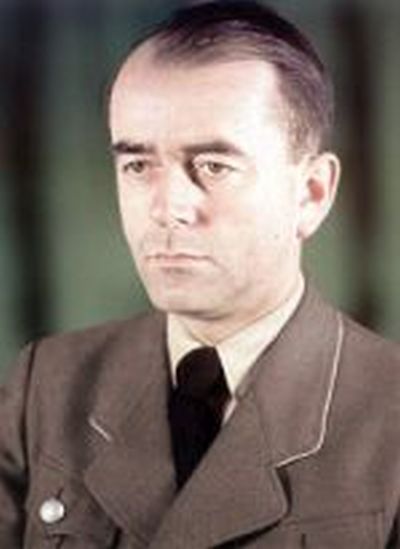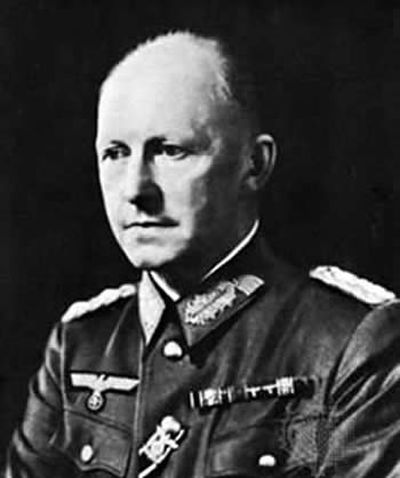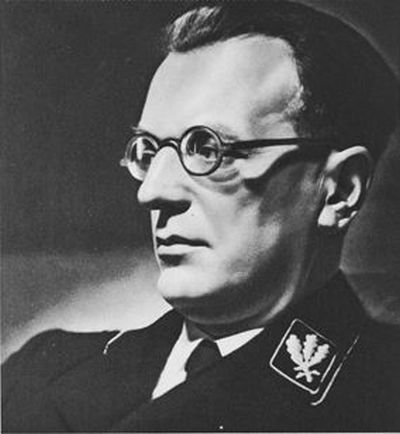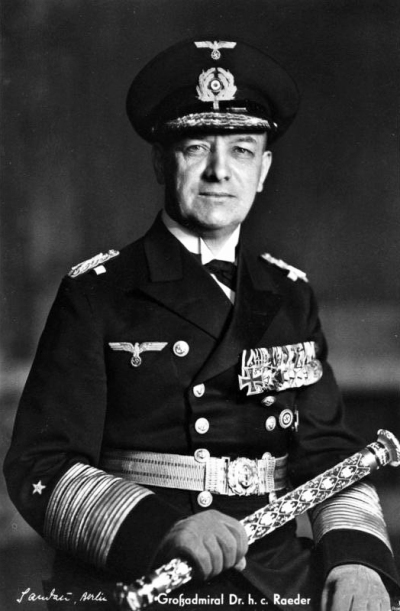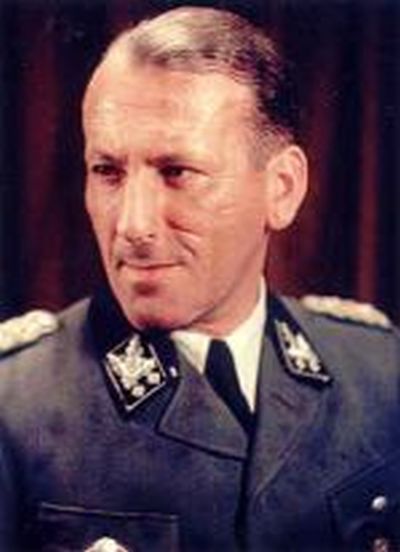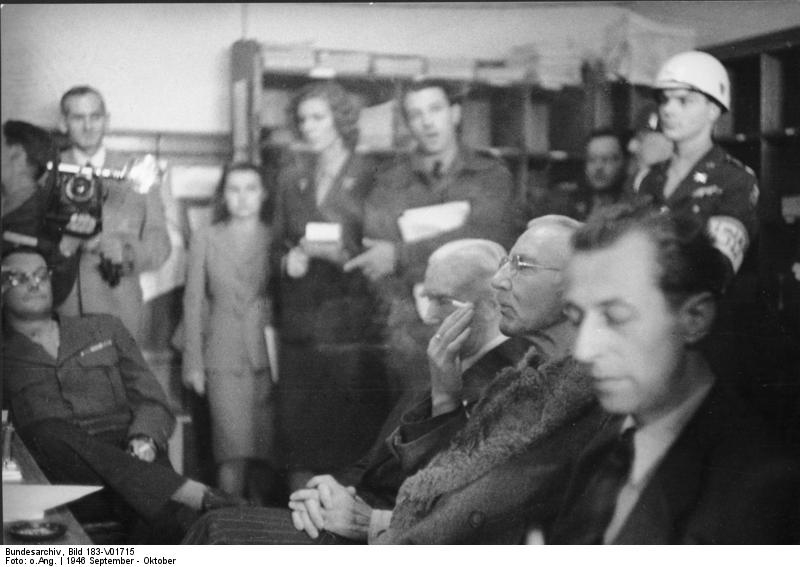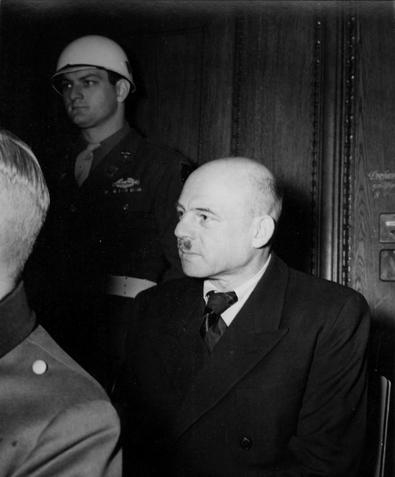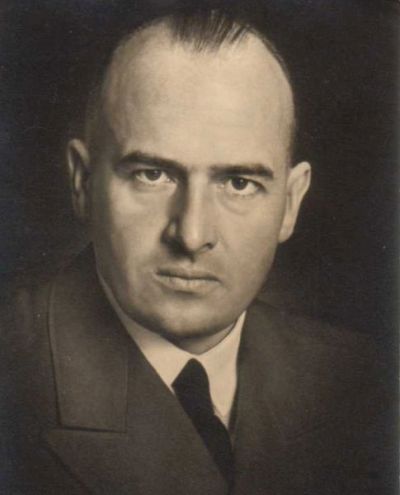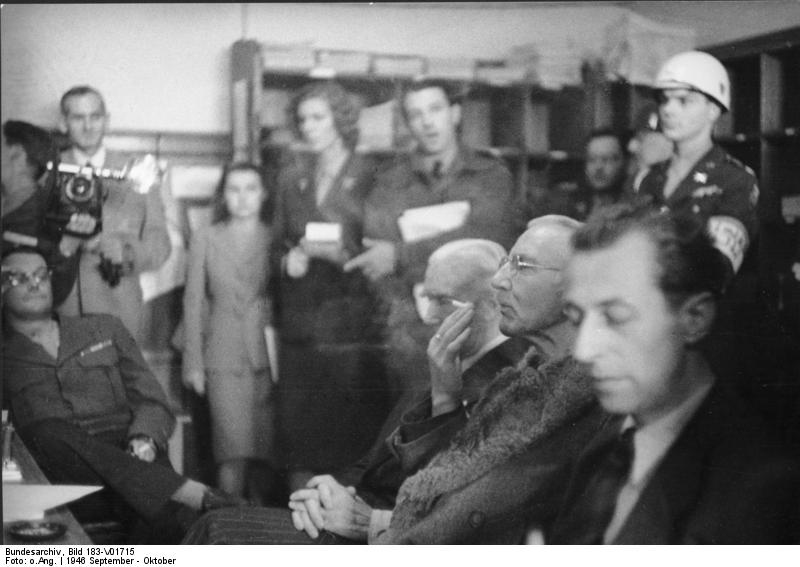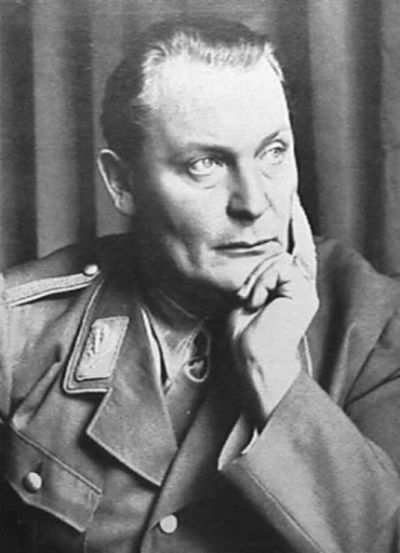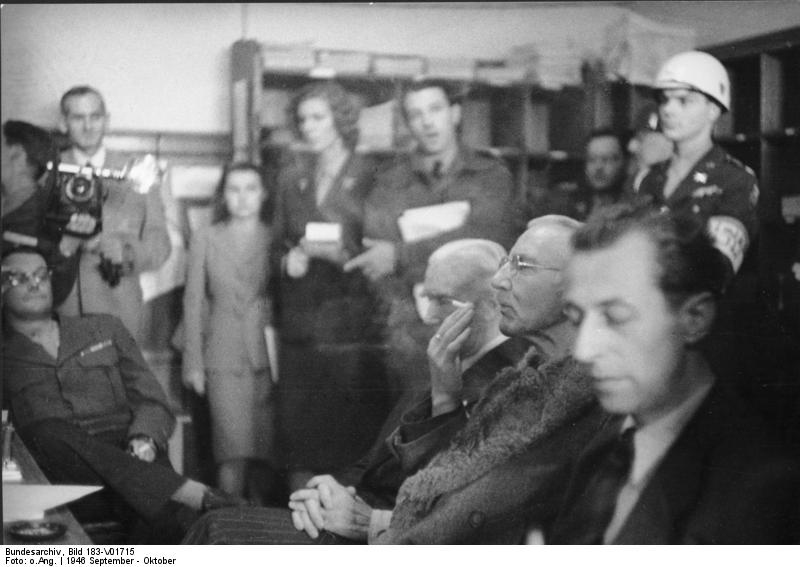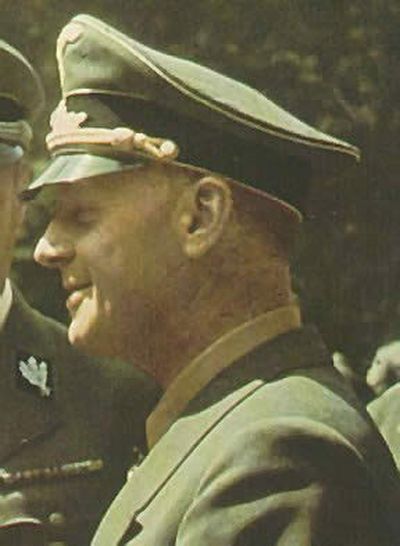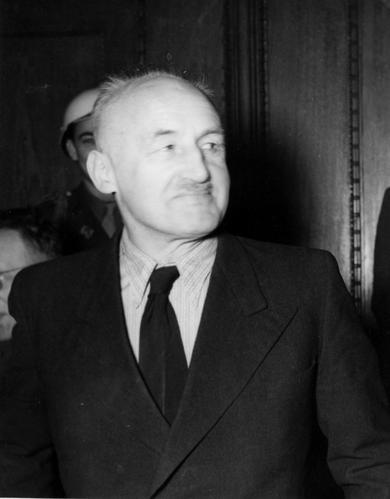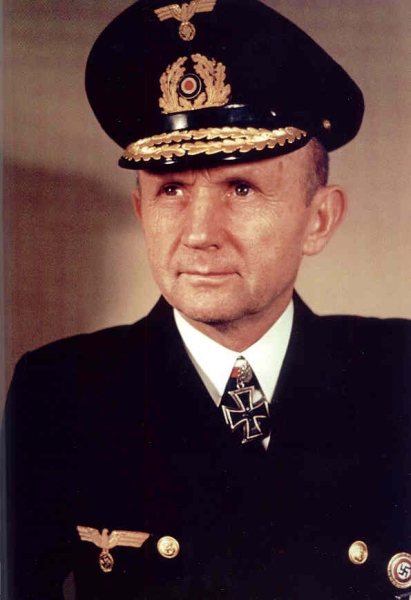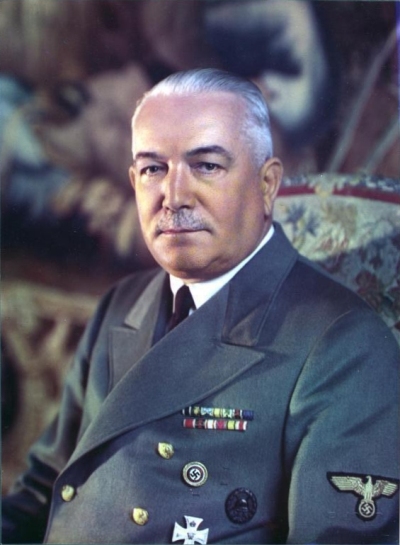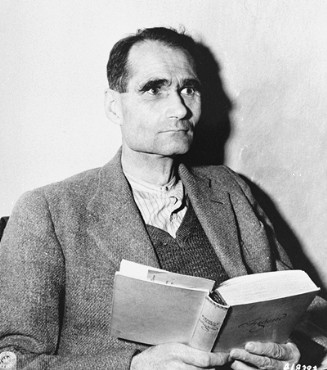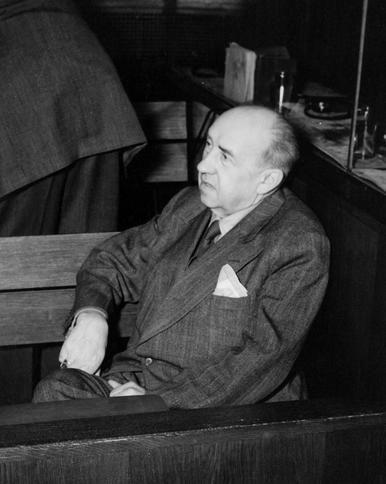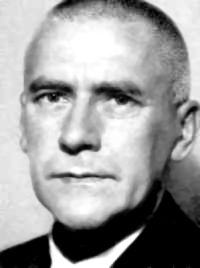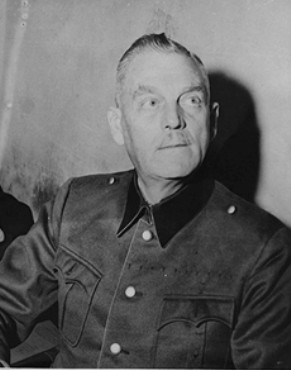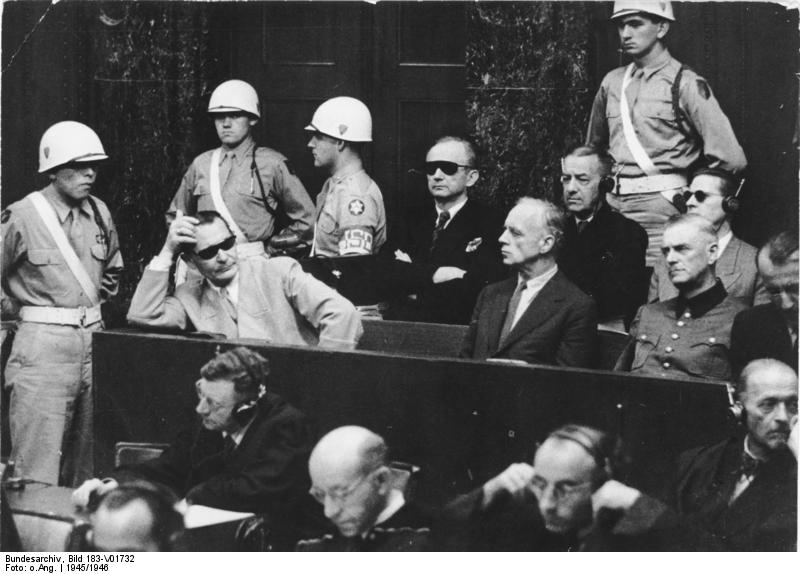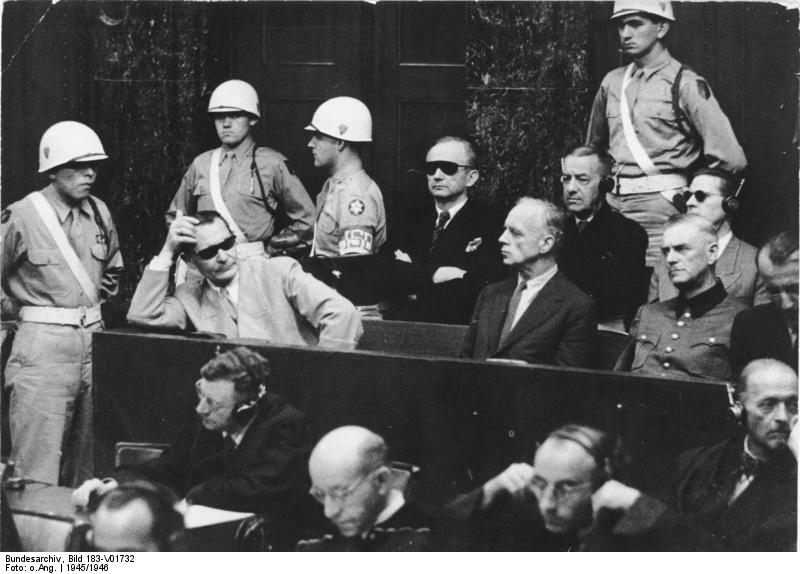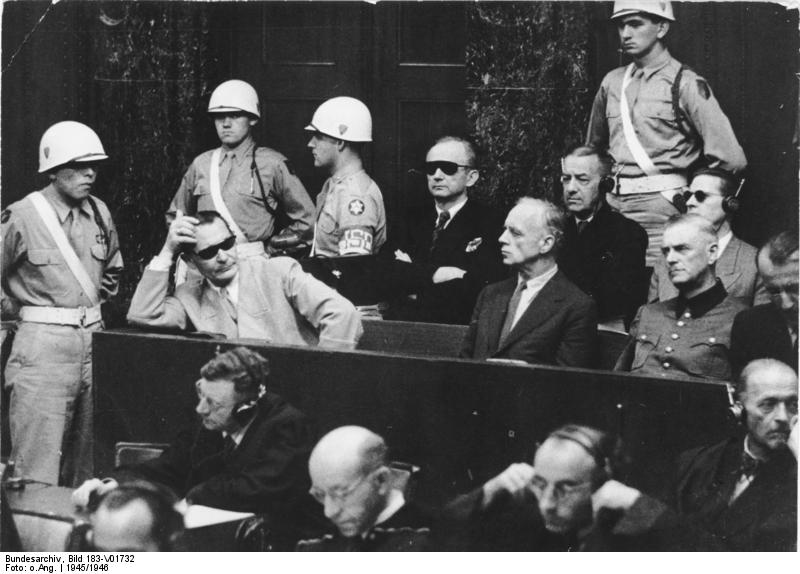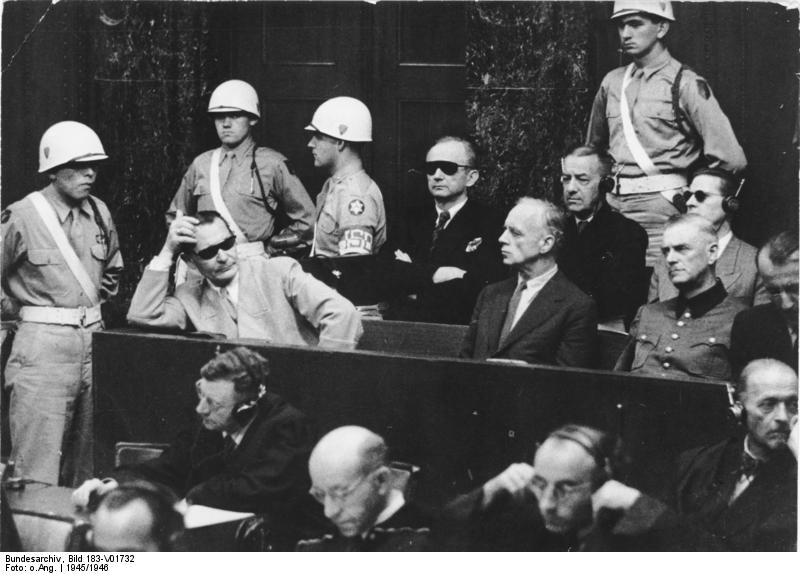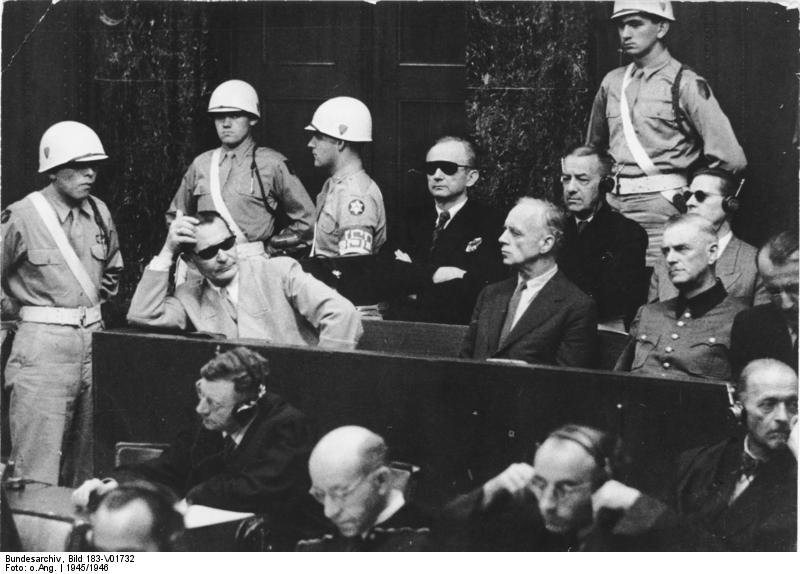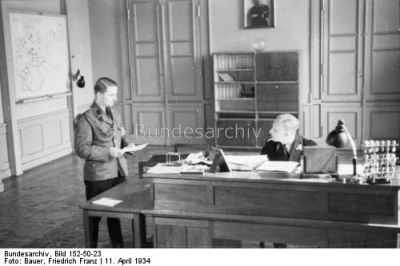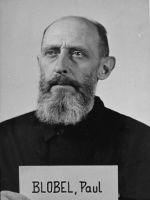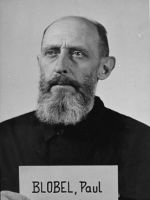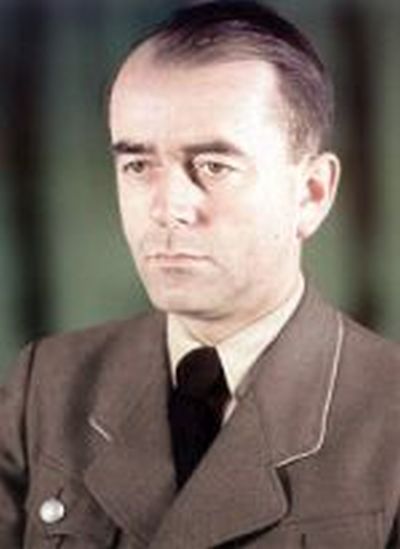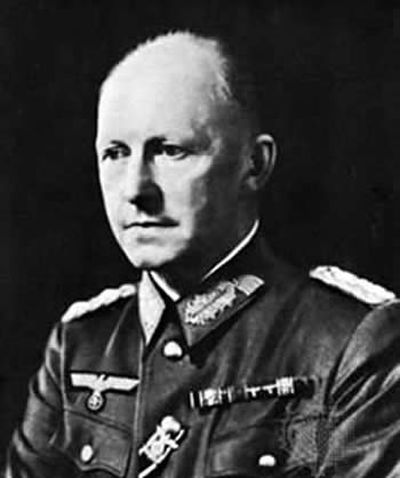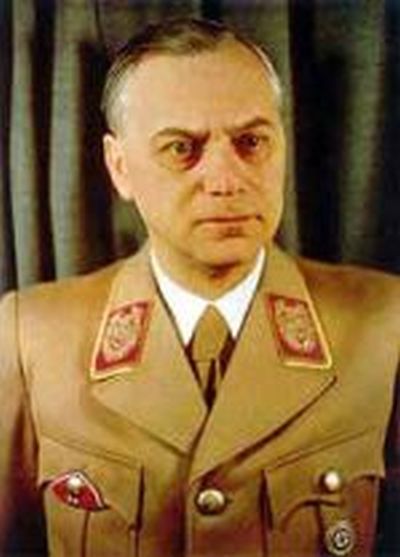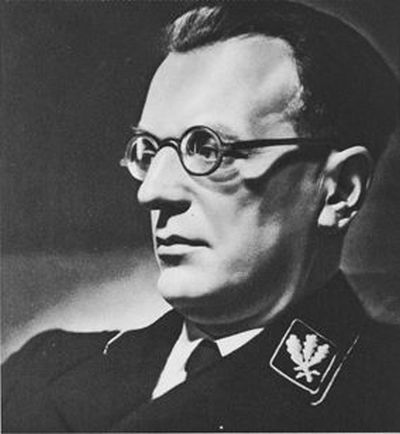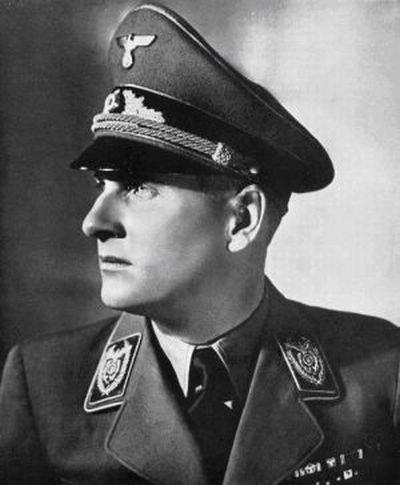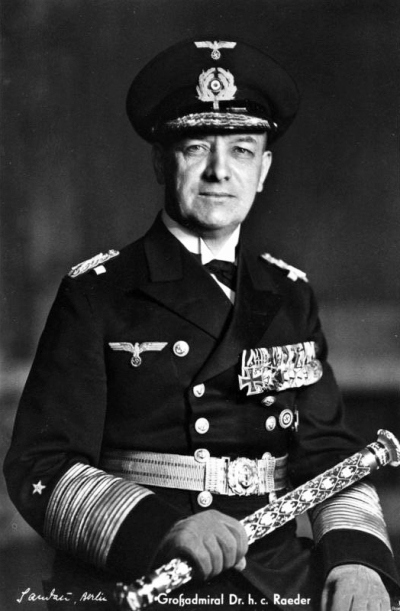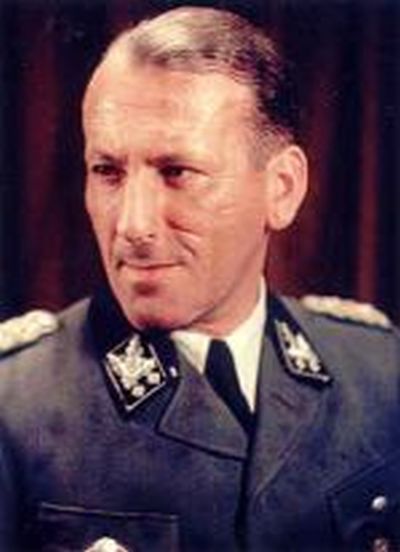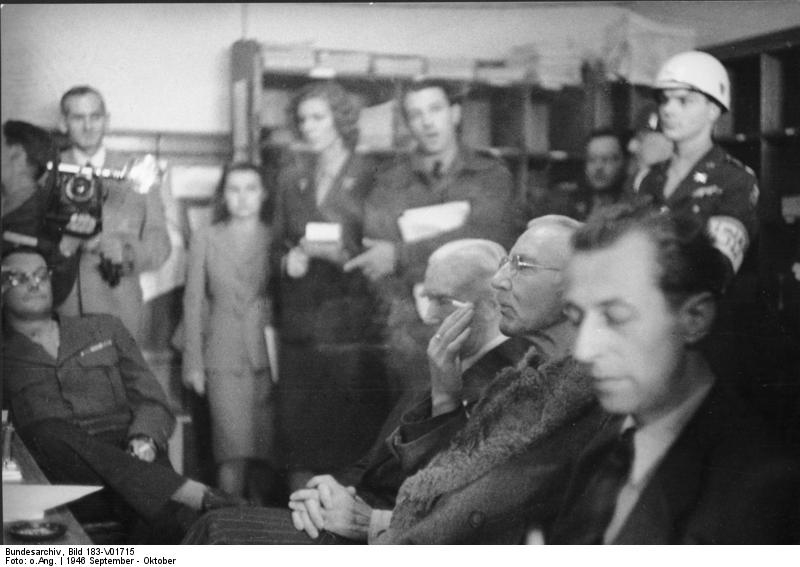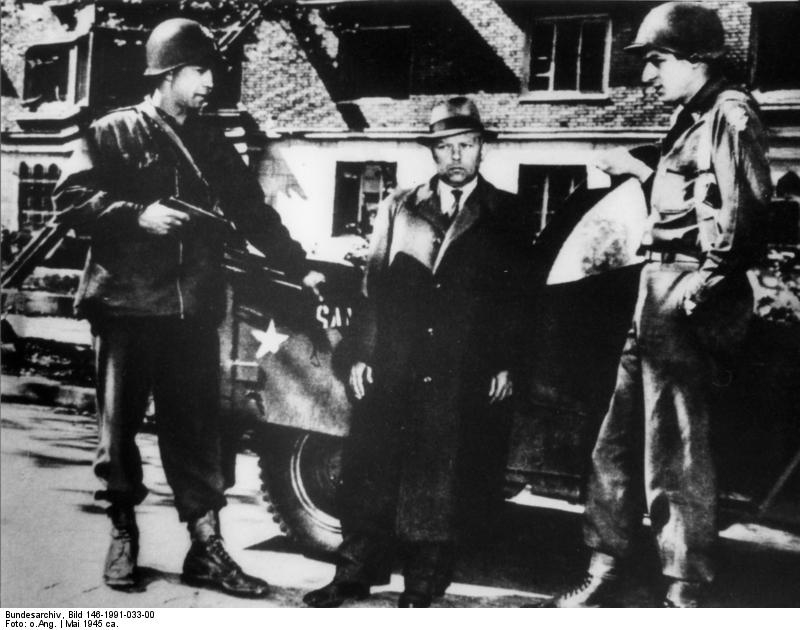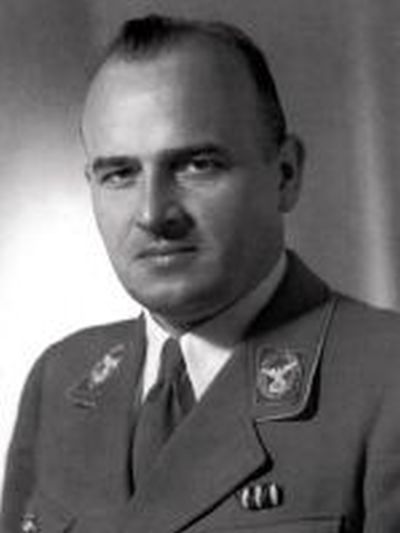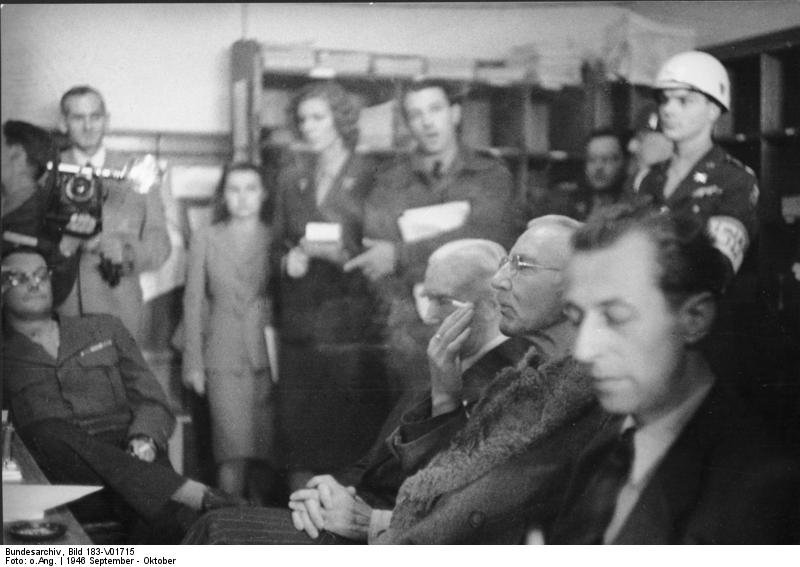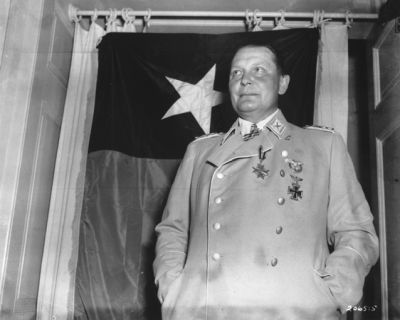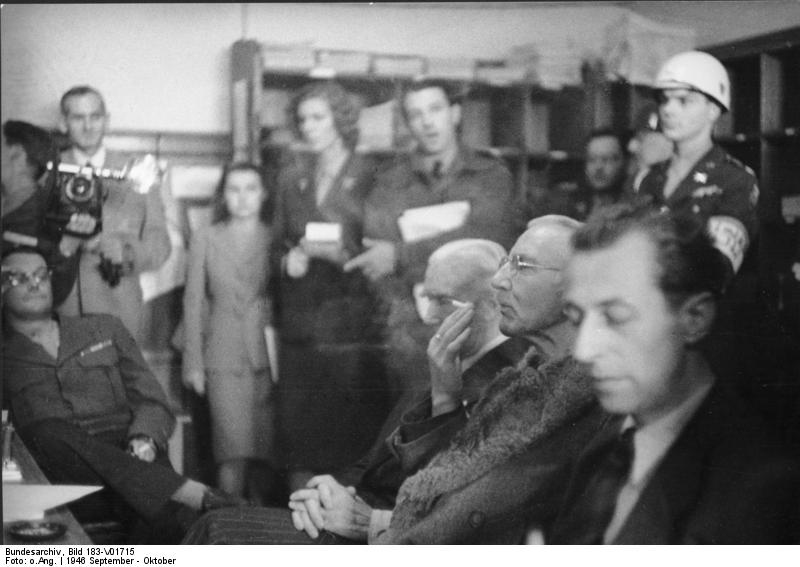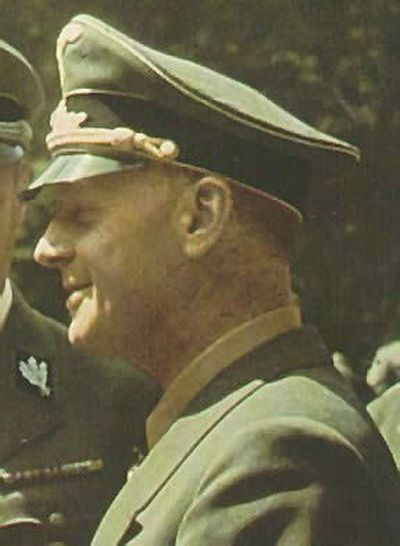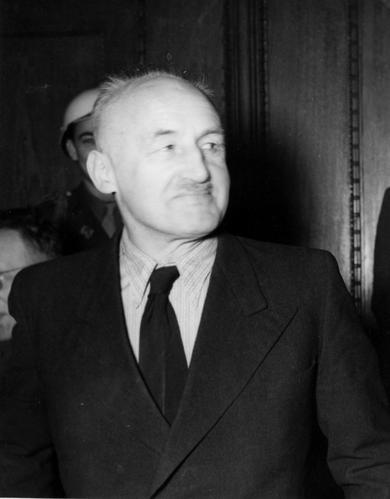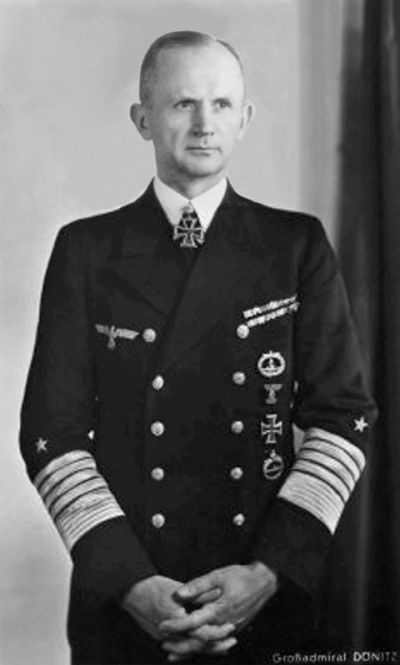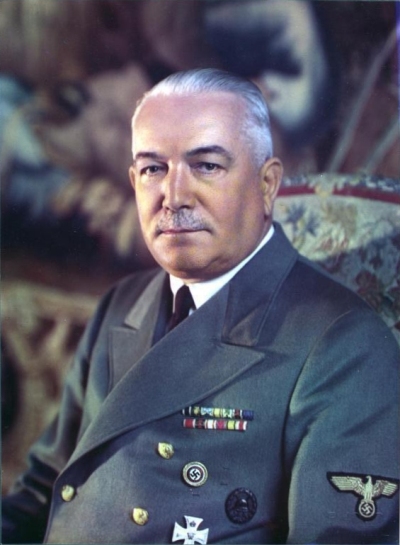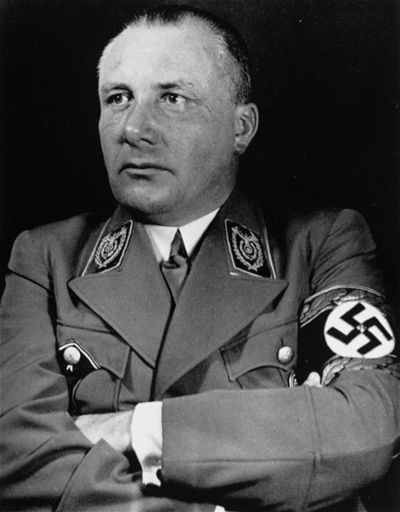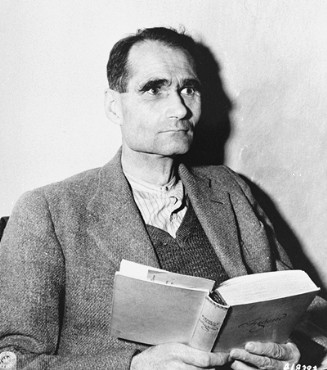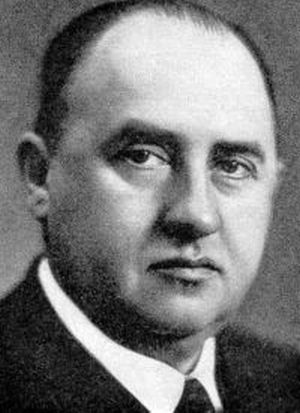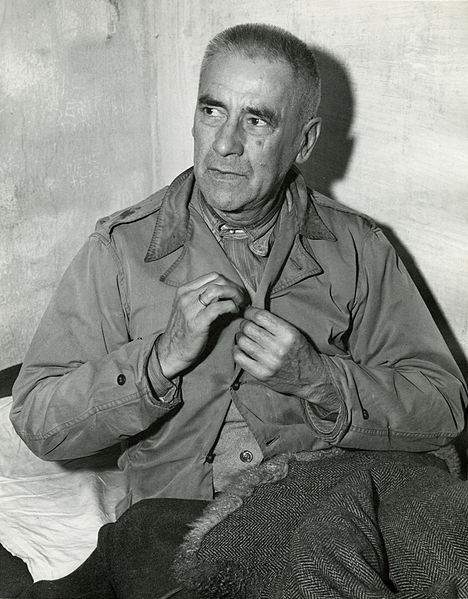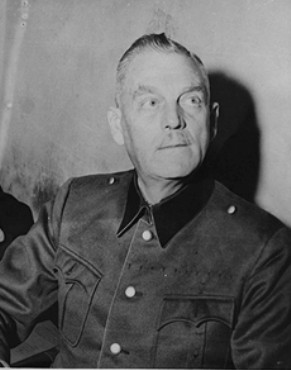Articles
- Article by Arnold Palthe
- Published on January 7th, 2016
Final statement Albert Speer
Mr. President, may it please the Tribunal: Hitler and the collapse of his system have brought a time of tremendous suffering upon the German people
- Article by Arnold Palthe
- Published on January 6th, 2016
Final statement Alfred Jodl
Mr. President, may it please the Tribunal, it is my unshakable belief that later historians will arrive at a just and objective verdict concerning the higher military leaders and their assistants.....
- Article by Arnold Palthe
- Published on December 31st, 2015
Final statement Alfred Rosenberg
Besides repeating the old accusations, the prosecutors have raised new ones of the strongest kind, thus they claim that we all attended secret conferences in order to plan a war of aggression.
- Article by Arnold Palthe
- Published on January 6th, 2016
Final statement Arthur Seyss-Inquart
Mr. President, in my final words I want to make one more contribution in my power toward clearing up the matters which have been treated here, by explaining the personal motives and considerations for my actions.
- Article by Arnold Palthe
- Published on January 5th, 2016
Final statement Baldur von Schirach
On 24 May I made a statement here for which I answer before God and my conscience and which I fully uphold, even today at the end of the Trial because it is in accordance with my honest innermost conviction.
- Article by Arnold Palthe
- Published on January 5th, 2016
Final statement Erich Raeder
This Trial, now that the evidence has been concluded, has had a beneficial result for the German nation; but an unexpected one for the Prosecution.
- Article by Arnold Palthe
- Published on December 31st, 2015
Final statement Ernst Kaltenbrunner
The Prosecution holds me responsible for the concentration camps, for the destruction of Jewish life, for Einsatzgruppen and other things.
- Article by Arnold Palthe
- Published on January 6th, 2016
Final statement Franz von Papen
Your Lordship, may it please the Tribunal, when I returned home in 1919, I found a people, torn by the political struggles of the parties, which was then attempting to find a new mode of existence after the downfall.
- Article by Arnold Palthe
- Published on January 6th, 2016
Final statement Fritz Sauckel
Gentlemen of the Tribunal: I have been shaken to the very depths of my soul by the atrocities revealed in this Trial.
- Article by Arnold Palthe
- Published on January 1st, 2016
Final statement Hans Frank
Your Honors: Adolf Hitler, the chief defendant, left no final statement to the German people and the world.
- Article by Arnold Palthe
- Published on January 7th, 2016
Final statement Hans Fritzsche
May it please the Tribunal: The chief prosecutors in their final speeches have repeated several of the accusations against me, although in my opinioin they were clearly refuted by the evidence.
- Article by Arnold Palthe
- Published on December 20th, 2015
Final statement Hermann Göring
The prosecution, in its final speeches, has treated the defendants and their testimony as completely worthless.
- Article by Arnold Palthe
- Published on January 4th, 2016
Final statement Hjalmar Schacht
My sense of justice was deeply wounded by the fact that the final speeches of the Prosecution completely by-passed the evidence resulting from this Trial.
- Article by Arnold Palthe
- Published on December 24th, 2015
Final statement Joachim von Ribbentrop
This trial was to be conducted for the purpose of discovering the historical truth.
- Article by Arnold Palthe
- Published on January 2nd, 2016
Final statement Julius Streicher
Your Honors. At the beginning of this Trial I was asked by the President whether I pleaded guilty in the sense of the Indictment. I answered that question in the negative.
- Article by Arnold Palthe
- Published on January 1st, 2016
Final statement Karl Dönitz
KARL DÖNITZ: I should like to say three things. Firstly, you may judge the legality of German submarine warfare as your conscience dictates. I consider this form of warfare justified and have acted according to my conscience.
- Article by Arnold Palthe
- Published on January 7th, 2016
Final statement Konstantin von Neurath
Firm in the conviction that truth and justice will prevail before this High Tribunal over all hatred, slander, and misrepresentation, I believe that I should add only this one thing to the words of my defense counsel: my life was consecrated to truth and honor, to the maintenance of peace and the reconciliation of nations, to humanity and justice.
- Article by Arnold Palthe
- Published on December 22nd, 2015
Final statement Rudolf Hess
I was permitted to work for many years of my life under the greatest son whom my people has brought forth in its thousand-year history........I do not regret anything.
- Article by Arnold Palthe
- Published on January 3rd, 2016
Final statement Walter Funk
In the days of my nation's greatest need I joined a political movement, the aim of which was the struggle for the freedom and honor of my fatherland and for a true social community of the people.
- Article by Arnold Palthe
- Published on January 1st, 2016
Final statement Wilhelm Frick
I have a clear conscience with respect to the Indictment. My entire life was spent in the service of my people and my fatherland.
- Article by Arnold Palthe
- Published on December 26th, 2015
Final statement Wilhelm Keitel
I acknowledged on the witness stand my responsibility in connection with my official position and have explained the significance of this position in the presentation of evidence and in the final plea of my defence counsel.
- Article by Arnold Palthe
- Published on October 23rd, 2018
Hearing Wilhelm Keitel 1
Dr. NELTE (counsel Wilhelm Keitel):: Mr. President, I will begin the presentation of the case for Keitel by asking you to summon the defendant to the witness stand, and I shall question him.
- Article by Arnold Palthe
- Published on October 27th, 2018
Hearing Wilhelm Keitel 2
Dr. NELTE: Yesterday we discussed last the meeting on April 21 of you, Hitler, and Adjutant Schmund.
- Article by Arnold Palthe
- Published on November 7th, 2018
Hearing Wilhelm Keitel 3
Dr. NELTE: The last question I asked you yesterday concerned the channels through which orders were transmitted in matters concerning prisoners-of-war.
- Article by Arnold Palthe
- Published on November 17th, 2018
Hearing Wilhelm Keitel 4
Gen. RUDENKO (chief prosecutor for the USSR): Defendant Keitel, I am asking you about the directive concerning the so-called communist insurrectionary movement in the occupied territories.
- Article by Arnold Palthe
- Published on November 25th, 2018
Hearing Wilhelm Keitel 5
Sir David MAXWELL-FYFE (deputy chief prosecutor for the UK): I want to ask you some questions about the shooting of officers who escaped from the Sagan Camp. As I understand your evidence, very shortly after the escape you had this interview with Hitler at which certainly Himmler was present. That is right isn't it?
- Article by Arnold Palthe
- Published on December 19th, 2015
Statement Alfred Naujocks
Statement of Alfred Naujicks about the raid on the radiostation at Gleiwitz.
- Article by Arnold Palthe
- Published on January 28th, 2016
Statement Paul Blobel 06-06-1947
Sworn testament of Paul Blobel.
- Article by Arnold Palthe
- Published on January 30th, 2016
Statement Paul Blobel 18-06-1947
Sworn testament of Paul Blobel.
- Article by Arnold Palthe
- Published on January 7th, 2016
Verdict Albert Speer
Speer joined the Nazi Party in 1932. In 1934 he was made Hitler’s architect and became a close personal confidant.
- Article by Arnold Palthe
- Published on January 6th, 2016
Verdict Alfred Jodl
From 1935 to 1938 he was Chief of the National Defense Section in the High Command. After a year in command of troops, in August 1939 he returned to become Chief of the Operations Staff of the High Command of the Armed Forces.
- Article by Arnold Palthe
- Published on December 31st, 2015
Verdict Alfred Rosenberg
He joined the Nazi Party in 1919, participated in the Munich Putsch of 9 November 1923 and tried to keep the illegal Nazi Party together while Hitler was in jail.
- Article by Arnold Palthe
- Published on January 6th, 2016
Verdict Arthur Seyss-Inquart
Seyss-Inquart, an Austrian attorney, was appointed State Councillor in Austria in May 1937 as a result of German pressure.
- Article by Arnold Palthe
- Published on January 5th, 2016
Verdict Baldur von Schirach
He joined he Nazi Party and the SA in 1925. In 1929, he became the leader of the Nationalsocialist Students Union.
- Article by Arnold Palthe
- Published on January 5th, 2016
Verdict Erich Raeder
In 1928 he became Chief of Naval Command and in 1935 Oberbefehlshaber der Kriegsmarine (OBM); in 1939 Hitler made him Grossadmiral.
- Article by Arnold Palthe
- Published on December 26th, 2015
Verdict Ernst Kaltenbrunner
He joined the Austrian Nazi Party and the SS in 1932. In 1935 he became leader of the SS in Austria.
- Article by Arnold Palthe
- Published on January 6th, 2016
Verdict Franz von Papen
He was appointed Chancellor of the Reich on June 1, 1932, and was succeeded by Von Schleicher on December, 2, 1932.
- Article by Arnold Palthe
- Published on January 6th, 2016
Verdict Fritz Sauckel
Sauckel joined the Nazi Party in 1923, and became Gauleiter of Thuringia in 1927.
- Article by Arnold Palthe
- Published on January 1st, 2016
Verdict Hans Frank
Frank joined the Nazi Party in 1927.
- Article by Arnold Palthe
- Published on January 7th, 2016
Verdict Hans Fritzsche
He was best known as a radio commentator, discussing once a week the events of the day on his own program, "Hans Fritzsche Speaks".
- Article by Arnold Palthe
- Published on December 21st, 2015
Verdict Hermann Göring
The evidence shows that after Hitler, he was the most prominent man in the Nazi regime.
- Article by Arnold Palthe
- Published on January 4th, 2016
Verdict Hjalmar Schacht
Schacht served as Commissioner of Currency and President of the Reichsbank from 1923 to 1930; was reappointed President of the bank on 17 March 1933; Minister of Economics in August 1934 and Plenipotentiary General for War Economy in May 1935.
- Article by Arnold Palthe
- Published on December 24th, 2015
Verdict Joachim von Ribbentrop
He joined the Nazi Party in 1932.
- Article by Arnold Palthe
- Published on January 2nd, 2016
Verdict Julius Streicher
One of the earliest members of the Nazi Party, joining in 1921, he took part in the Munich Putsch.
- Article by Arnold Palthe
- Published on January 1st, 2016
Verdict Karl Dönitz
In 1935, Dönitz took command of the first U-Boat flotilla commissioned since 1918;
- Article by Arnold Palthe
- Published on January 7th, 2016
Verdict Konstantin von Neurath
Von Neurath, a professional diplomat who served as German Ambassador to Great Britain from 1930 to 1932.
- Article by Arnold Palthe
- Published on January 8th, 2016
Verdict Martin Bormann
Bormann joined the Nationalsocialist Party in 1925, was a member of the Staff of the Supreme Command of the SA from 1928 to 1930, was in charge of the Aid Fund of the Party and was Reichsleiter from 1933 to 1945.
- Article by Arnold Palthe
- Published on December 23rd, 2015
Verdict Rudolf Hess
Hess joined the Nazi Party in 1929 and participated in the Munich Putsch on 9 November 1923.
- Article by Arnold Palthe
- Published on January 3rd, 2016
Verdict Walter Funk
Funk, who had previously been a financial journalist, joined the Nazi Party in 1931 and shortly thereafter became one of Hitler's personal economic advisers.
- Article by Arnold Palthe
- Published on January 1st, 2016
Verdict Wilhelm Frick
Recognized as the chief Nazi administrative specialist and bureaucrat, he was appointed Reichsminister of the Interior in Hitler's first cabinet.
- Article by Arnold Palthe
- Published on December 26th, 2015
Verdict Wilhelm Keitel
He was Chief of Staff to the then Minister of War Von Blomberg from 1935 to 4 February 1938; on that day, Hitler took command of the Armed Forces, making Keitel Chief of the High Command of the Armed Forces.
